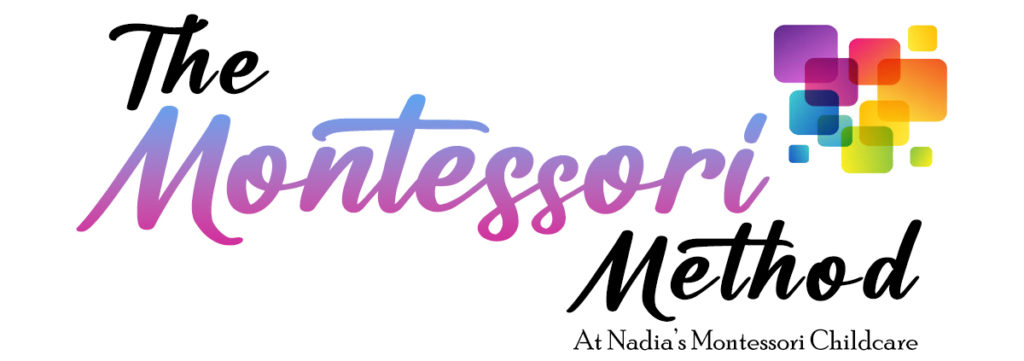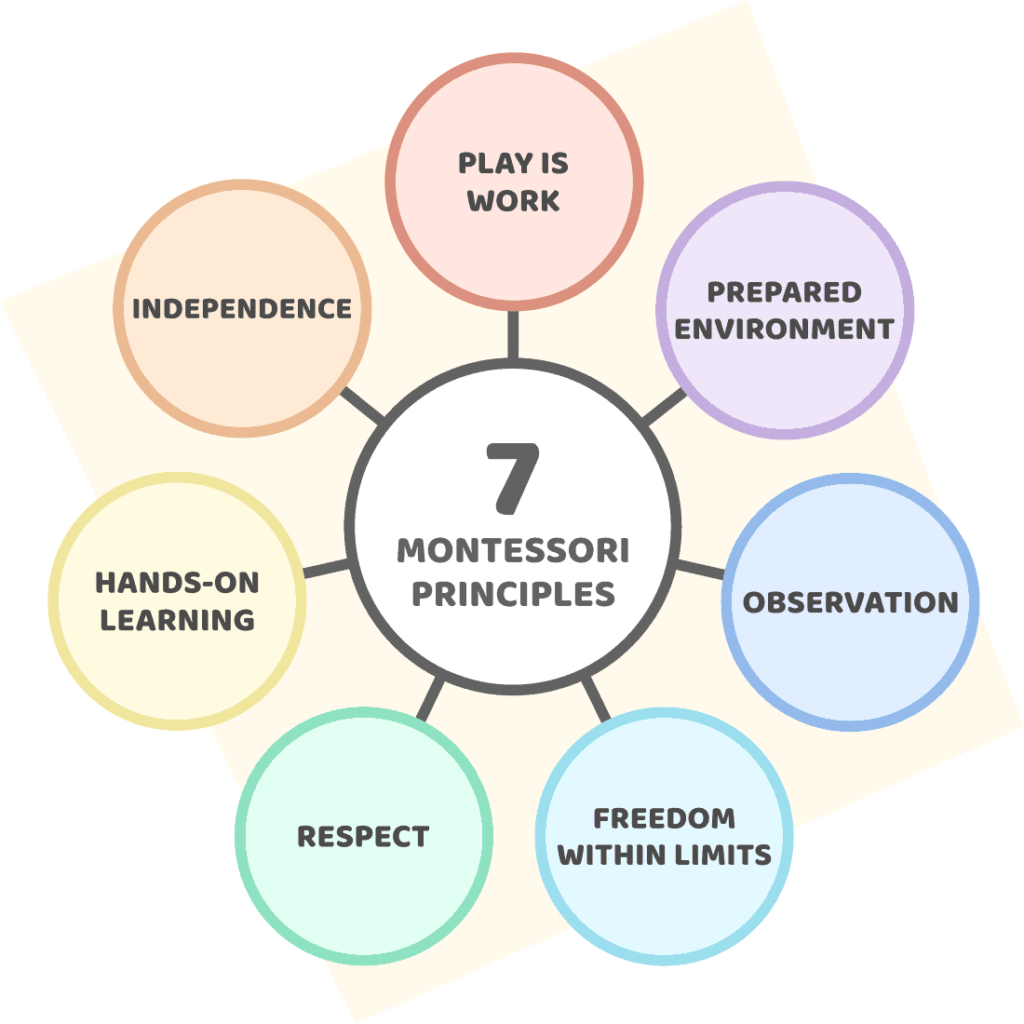
Home | Montessori Method | Photo Gallery | FAQ | Financial Aid
Careers | Calendar | Location | Hours | Contact

Nadia’s Montessori Childcare is one of the best private Montessori preschools in Chino, CA. We follow the Montessori Method, which means we use a child-centered approach to learning with emphasis on independence and choice. This theory of teaching understands that children have an innate interest to learn and will be able to do so in a suitable environment. It strives to create a classroom that is filled with order, cleanliness, beauty, and harmony.
How Montessori Began
Dr. Maria Montessori began developing The Montessori Method in the 1890s. It’s a specific child-centered method of education that involves child-led activities (referred to as “work” or “material”). She developed her theories through scientific experimentation with her students. The Montessori method has since been used in many parts of the world, in public and private schools alike.
According to an article in Computers and Technology in Montessori Schools, “The Montessori method of education is a system of education for children that seeks to develop natural interests and activities rather than use formal teaching methods. A Montessori classroom places an emphasis on hands-on learning and developing real-world skills.”
Dr. Montessori believed that children learn better when they’re choosing what to learn, and that philosophy is present in Montessori classrooms today. A Montessori classroom likely looks different than what you’re used to. Things that make it unique include:
- Various activity stations for children to choose from throughout the day.
- A focus on the whole student—social, emotional, intellectual and physical development are all considered.
- Nadia’s Montessori Childcare doesn’t use a traditional grading system. However, we have assessments so you can follow the progress of your child.
Look who else went to Montessori schools!
Jeff Bezos (founder of Amazon)
According to Business Insider, Bezos himself attended Montessori school, and his mom told once The Wall Street Journal that Bezos would become “so engrossed in his activities as a Montessori preschooler that his teachers would literally have to pick him up out of his chair to go to the next task.”
Sergey Brin and Larry Page (co-founders of Google)
“I think it was part of that training of not following rules and orders, and being self motivated, questioning what’s going on in the world and doing things a little bit differently,” Page has said of his Montessori education in The Christian Science Monitor.
Prince William, Prince Harry, and Prince George
“As with all children who attend Montessori, [Prince] George will learn to become independent, to think for himself, to be considerate to other children and how to respect others, and to have an orderly mind. His vocabulary will be enriched, his world will be enriched – studies have shown the Montessori experience helps brain function later on.”
(Source 1, Source 2)
Thomas Edison (Inventor)
“I like the Montessori method… It teaches through play. It makes learning a pleasure. It follows the natural instincts of the human being. The present system casts the brain into a mold. It does not encourage original thought or reasoning.” (Source: National Park Service)
The 7 Principles of Montessori:

- Free Choice – Learning and well-being are improved when children have a sense of control over their lives. Children are free to make many more decisions than are children in traditional classrooms. Our students have freedom, within limits. We let them choose activities based on a range of options.
- Teacher Guidance – Our Montessori teachers provide clear limits but set children free within these boundaries. They sensitively respond to children’s needs while maintaining high expectations.
- Interest – Children learn better when they are interested in what they are learning. We provide specialized educational materials are often made out of natural, aesthetic materials such as wood, rather than plastic
- Context – Rather than learning largely from what teachers and texts say to them, children in our Montessori program learn largely by doing. Because they are doing things, rather than merely hearing and writing, their learning is situated in the context of actions and objects.
- Movement – Movement and cognition are closely entwined. At Nadia’s Montessori Childcare, we use movement to promote learning in education.
- Learning From Peers – Children in Nadia’s Montessori classrooms learn by imitation models, through peer tutoring, and through collaboration. We employ a constructivist or “discovery” model, in which students learn concepts from working with materials rather than by direct instruction
- Order – A harmonious environment is imperative to learning and development. Our private school has Montessori classrooms are very organized, both physically (in terms of layout) and conceptually (in terms of how the use of materials progresses). We strive to create a thoughtfully prepared environment where materials are organized by subject area, is accessible to children, and is appropriately sized.
Recommended Montessori Resources
For more information on the Montessori Method, books, videos, articles, and more, here are some resources we recommend:
Montessori Education
Free Montessori Resources
A Montessori Approach to Toilet Training
Montessori Environment Preparation
Montessori Collaboration – Wikisori
Over 500 Free Printable Worksheets – At Home or School
Please give us a call to schedule a free tour of Nadia’s Montessori Childcare, one of the Top Montessori Private Preschools in Chino, CA. We also have an After School Art Program for Elementary Age students. We would love to introduce your children to the Montessori Method of learning!